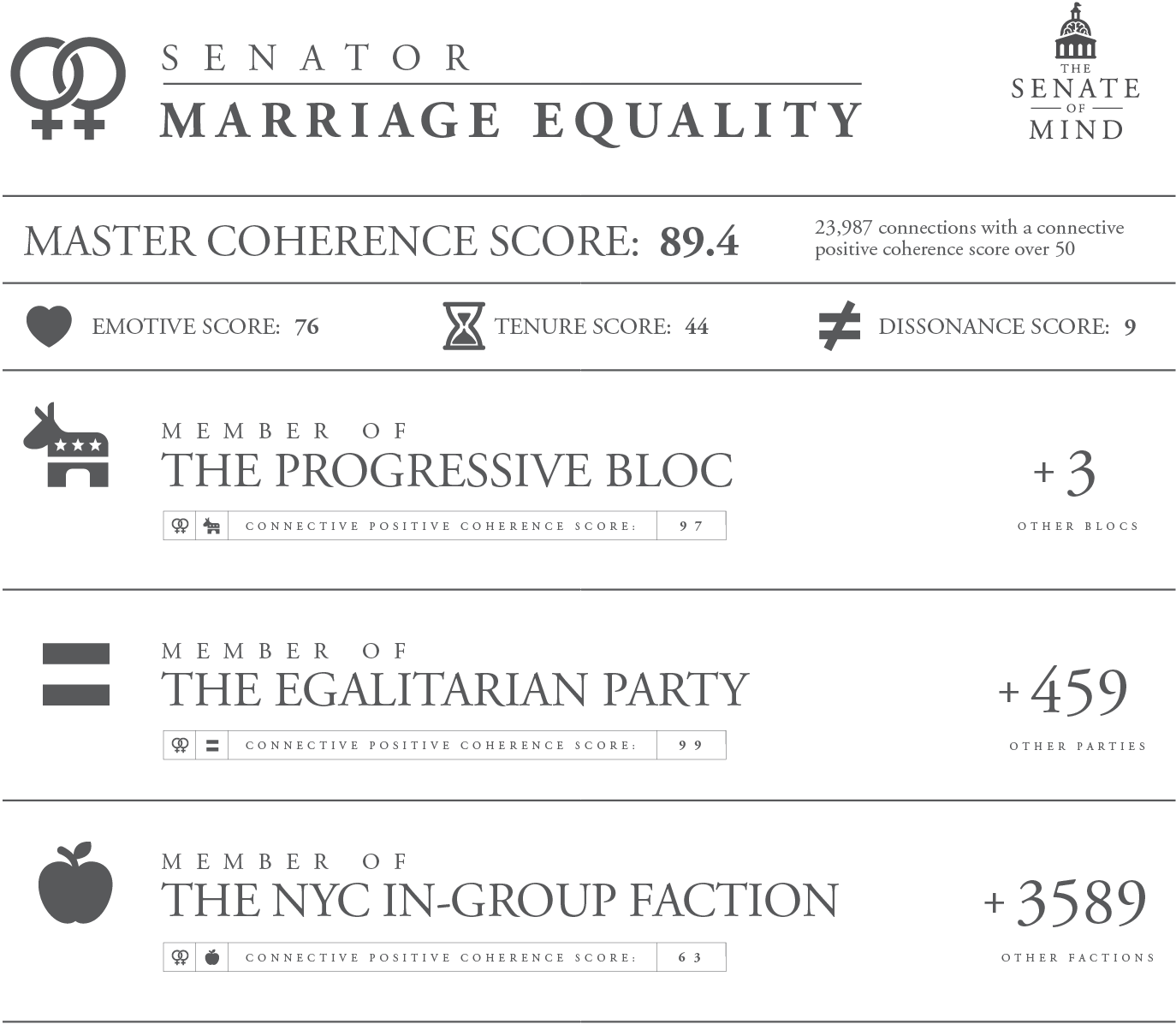What if your mind is corrupt and you don’t even know it?
We often think of our mind as a singular entity that comprises our one true self. There’s a rather significant problem with this way of looking at minds, insofar as that’s not at all how they work. The truth is that we contain multitudes — our minds are complex, multifaceted, and often internally dissonant.
The Senate of Mind offers a new way to think about how we think, which you may find useful (or at least a bit interesting).
Imagine your mind as a democracy of ideas. Each idea you hold has a vote in your senate of mind, and related ideas form factions, parties and blocs to bolster their power. The more connections there are between ideas, the more influence they have together.
Every time we have a thought, it must go to a vote. However the tricky part is that these votes are usually held behind closed doors — they happen subconsciously. The other tricky part is that most of these ideas were appointed without any oversight, simply the first ideas to waltz into the senate were able to start forming power structures with other ideas to be able to ensure that they would remain powerful.
In this way, ideas that you were exposed to when you were young had a huge advantage over ideas that you weren’t exposed to until later.
If a bill of thought is passed by the sitting senate of the day with a clear majority, a new idea is entered into conscious thought as law. Any minority opposition or quibbles are not registered in the conscious record.
Each idea (or faction, party, or bloc of ideas), also receives a pair on the opposite side of the senate where opposition ideas reside. These ideas are held in contempt, and have their voting rights inverted such that everything they stand for is antithetical to our mind’s political agenda. For example, if the idea of marriage equality has power in our ruling senate, then bigoted ideas relating to this subject will be automatically relegated to sit in opposition. And if a particular idea is judged to be an opposition idea it also creates a pair in the ruling senate that constitutes its positive opposite.
Any ideas that connect and cohere with opposition ideas lose power in the senate relative to their strength of connection, while ideas that connect with other ideas that hold power will in turn gain power themselves.
If there is clear opposition to a particular idea in the senate, it’s either voted down subconsciously and never enters into our conscious awareness at all, or is presented to the conscious mind as an opposition idea.
If two or more powerful factions, parties or blocs in the senate of mind have a disagreement about a particular decision that’s being voted on, then the conscious mind (our deliberative ‘system 2’) might be invited into the senate to evaluate which side has more votes, or if a compromise can be wrought. In this way we become aware of our own thinking, and consciously reflect upon the different influences and aspects of the problem at hand, rather than just accepting the law as we do when there’s no such conflict.
Critical thinking is when we open the doors to the senate and evaluate things even when there isn’t internal conflict (especially when there isn’t conflict).
The idea we have of our mind being a singular, united self is a pernicious one, because it means that anything we come across that conflicts with the ideas we hold, is experienced as an attack upon our very self.
If, however, we see the ideas we hold as separate entities i.e. as potentially corrupt politicians in our senate of mind, it gives us the oversight to be able to question and understand them, instead of merely reacting to defend them.
The take-away from this is that we have an ever-present opportunity to quite literally change our minds. The easy, boring and dangerous way is to let the senate keep and further entrench its existing power structure. The more difficult, interesting and healthy way is to not just change and question particular ideas, but to overhaul the system itself.
If the most powerful and influential ideas in your senate of mind are dedicated to critical thinking, reason, and evidence, then there will be considerably less room for corruption, ideologies, or delusions of various stripes.
Your thinking, and indeed your very self, will be a self-regulating system of understanding, in contrast to the underhanded subterfuge and duplicity of an actual senate.
This article was originally published on Medium


